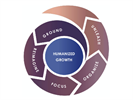Holmes Report 18 Dec 2016 // 10:38AM GMT

A vast majority of professional investors view investments in community action and philanthropy not as a waste of money that could be returned to shareholders, but rather as an indicator of a corporate culture less likely to produce expensive missteps like financial fraud, according to the second annual Corporate Responsibility Survey sponsored by insurance company Aflac, in partnership with by FleishmanHillard Research and Lightspeed GMI.
At the same time, expectations of good business behavior have become so strong that consumers are ready to take action to penalize companies viewed as irresponsible. And an overwhelming majority of employees believe their own companies are socially responsible, although less than half believe that American companies overall are responsible.
Among the revelations:
- 75% of consumers are likely to take some negative action toward irresponsible companies—everything from social media postings to organizing boycotts.
- A company that is seen as not responsible stands to lose as much as 39% of its potential customer base, and 1 in 4 consumers will tell their friends and family to avoid a company seen as not being responsible.
- 83% of professional investors are more inclined to invest in stock of a company well-known for its social responsibility, viewing such initiatives as an indicator of greater transparency and honesty in operations and financial reporting, resulting in lower risk.
- 79% of full- or part-time employed consumers believe their own employer is socially responsible, but only 41% believe all American companies are responsible.
"As millennials and Gen Zers are becoming larger players in the global economy, there is a lot of chatter about companies being held to higher standards for being socially responsible," said Aflac senior vice president of corporate communications Catherine Blades. "We conducted this survey because we wanted to dig deeper and measure why companies invest in programs that support environmental sustainability, minority recruitment, community support and similar goals—and what reputational impact such programs really have on today's consumers and investors."
For the survey, 1,400 respondents (100 corporate social responsibility executives, 100 investment professionals, and 1,200 American consumers aged 18 years and older) were asked about their thoughts regarding various aspects of corporate social responsibility.


































.jpg)

















